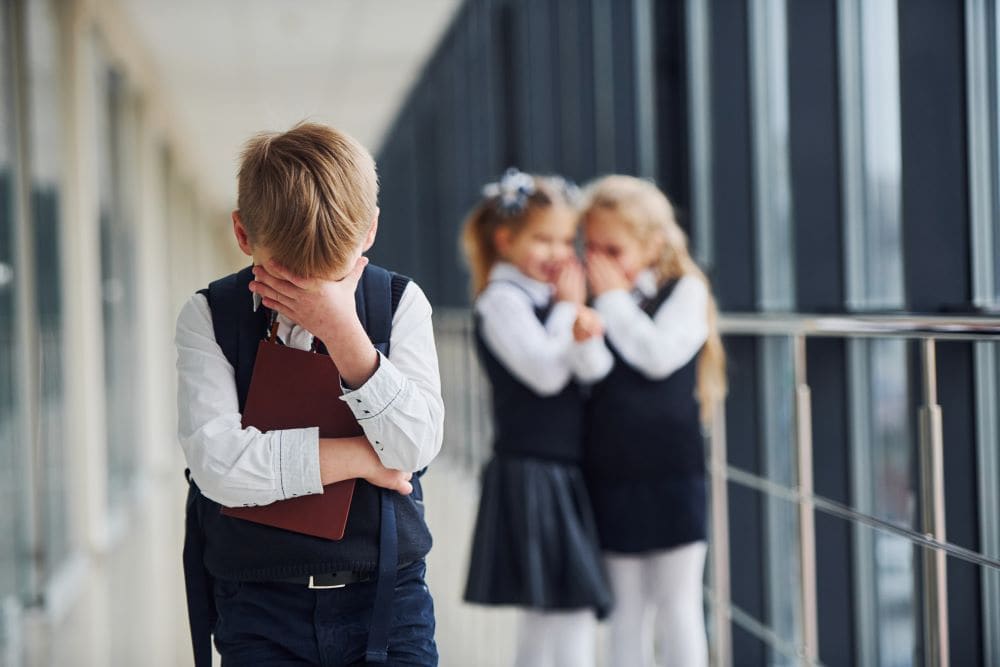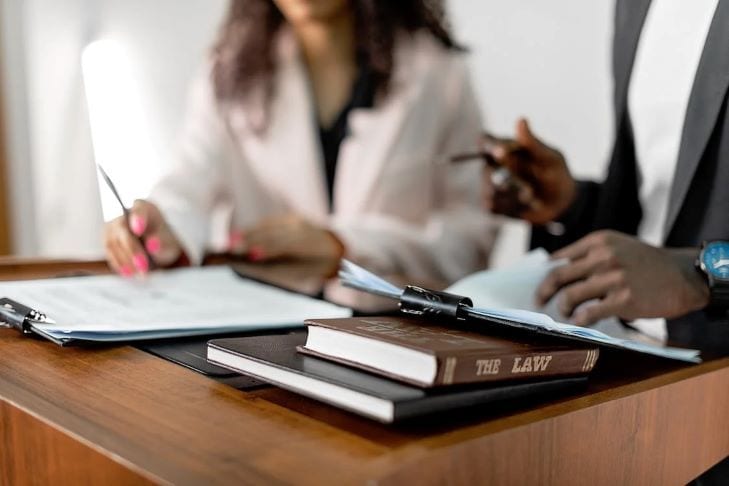
Every parent’s worst nightmare is the thought of their child being in harm’s way. When we send our children to school, we trust that they will be safe and protected within the confines of the educational environment. However, what happens when that trust is broken? Can you sue a school for not protecting your child? The short answer is yes, but let’s delve deeper into the intricacies of this complex issue.
Understanding the Duty of Care
Schools, whether public or private, have a legal obligation to provide a safe and secure environment for students. This duty of care extends beyond the classroom to school grounds, extracurricular activities, and even transportation provided by the school. When a public or private school fails to uphold this duty and a child suffers harm as a result, legal action may be warranted.
Types of Incidents and Injuries
Schools should be safe havens where children can learn and grow without fear of harm. However, when safety measures fail, students can suffer a range of injuries and traumas. Understanding the types of incidents that can occur is crucial when considering legal action against a school:
Physical Injury: Accidents like slips, falls, and sports-related incidents on school premises can lead to injuries, highlighting the importance of proper safety measures and supervision.
Negligent Supervision: Inadequate supervision during school hours or activities can expose students to risks such as fights, bullying, or accidents, underscoring the school’s duty to ensure student safety.
Sports Injuries: Without proper coaching, equipment, or supervision during sports activities, students face risks like concussions or fractures, emphasizing the need for comprehensive safety protocols in athletics.
Assault and Battery: Schools must maintain a safe environment to prevent physical harm from incidents like fights or assaults, with swift intervention protocols in place to address violence effectively.
Sexual Harassment and Abuse: Vigilant policies and procedures are essential to prevent and respond to instances of sexual harassment or abuse by staff or students, safeguarding the well-being of all students.
Bullying and Cyberbullying: Creating a culture of respect and intolerance for bullying, both physical and cyber, is crucial for fostering a safe and inclusive learning environment for all students.
Transportation Accidents: Schools must ensure safe transportation by maintaining vehicles and employing qualified personnel, reducing the risk of accidents and injuries during school travel.
When A School Fails to Protect Your Child?
School negligence can take various forms, ranging from inadequate supervision to failure to address instances of bullying or harassment. Some common examples of school negligence include:
Lack of Supervision: Schools are responsible for ensuring adequate supervision of students at all times, especially during activities such as recess, field trips, and extracurricular events. Failure to provide adequate supervision can lead to accidents, injuries, or incidents of misconduct.
Failure to Address Bullying or Harassment: Schools have a duty to address instances of bullying, harassment, or discrimination promptly. Failure to take appropriate action in response to reports of bullying or harassment can create a hostile environment for students and may result in legal liability.
Unsafe Premises: Schools must maintain their premises in a reasonably safe condition. This includes addressing hazards such as slippery floors, broken equipment, or inadequate security measures. Failure to maintain safe premises can lead to accidents and injuries.
Negligent Hiring or Retention: Schools can be held liable for negligent hiring or retention if they employ individuals with a history of misconduct or behavior that poses a risk to students. Failing to conduct thorough background checks or take appropriate action against a problematic school employee can increase the school’s liability.
Inadequate Response to Medical Emergencies: Schools must have protocols in place to respond to medical emergencies promptly. Failure to do so could result in serious consequences for students in need of urgent medical attention.
Who Can Be Held Responsible?
When it comes to holding a school accountable for not protecting your child, several parties may be held responsible depending on the circumstances of the incident. Understanding who can be held responsible is crucial in determining the course of legal action. Here are the key parties that may bear responsibility:
School Employees: Teachers, administrators, and staff members have a duty to ensure student safety and may be held liable for negligence.
School Districts: The governing body overseeing the school’s operation can be accountable for inadequate safety measures or policies.
School Board: Elected or appointed officials responsible for policy-making may face liability for decisions contributing to harm.
Other Students: Students causing harm through bullying or misconduct, along with their parents, can be held responsible.
Contractors/Third Parties: Negligent actions of contractors hired by the school, such as bus companies, could lead to liability.
Property Owners: Owners of school property may be liable if their negligence contributes to incidents.
Can You Sue a School?
Now, let’s address the burning question: can you sue a school for not protecting your child? The short answer is yes, under certain circumstances. If your child has suffered harm due to the negligence or misconduct of school staff or other students, you may have grounds for a lawsuit against the school. However, pursuing legal action against a school can be a complex and challenging process, requiring careful consideration and expert guidance.
The Legal Basis for Lawsuits Against Schools
When contemplating legal action against a school, several theories may apply, including:
Negligence: One of the primary legal theories behind lawsuits against schools is negligence. Negligence occurs when a school breaches its duty of care by failing to take reasonable steps to prevent harm to students. This could include inadequate supervision, failure to address known safety hazards, or ignoring reports of bullying or harassment.
Sovereign Immunity Rules: It’s important to note that sovereign immunity rules may limit the ability to sue certain government entities, including a public school. However, there are exceptions to these rules, particularly in cases involving gross negligence or intentional misconduct.
Civil Rights Violations: Schools that violate students’ constitutional rights, such as freedom from discrimination or harassment, may also be subject to legal action under federal law. This includes cases involving sexual harassment, racial discrimination, or violations of the Individuals with Disabilities Education Act (IDEA).
How to Sue a School for Not Protecting Your Child
If you believe that your child has been harmed due to the negligence of a school or its staff members, it’s essential to take prompt action to protect your child’s rights and interests. Here are some steps you can take:
Document the Incident
If your child has been harmed due to a school’s negligence, the first step is to document the incident thoroughly. Keep records of any communication with school officials, medical reports, and evidence of the harm suffered by your child.
Seek Legal Counsel
Consult with an experienced attorney who specializes in education law or personal injury cases. Look for a lawyer who has a track record of success in similar cases involving public schools or private schools. During your initial consultation, provide your attorney with all the documentation you’ve gathered and discuss the specifics of your case.
Understand Your Rights
Your attorney will help you understand your legal rights and options. They will explain the relevant laws and regulations governing schools’ duty of care to students, as well as any potential grounds for legal action, such as negligence, civil rights violations, or breach of contract.
Exhaust Administrative Remedies
Before filing a lawsuit, it may be necessary to exhaust administrative remedies, such as filing a complaint with the school district or state education agency. This process varies depending on the jurisdiction and the nature of the claim but is often a prerequisite to litigation.
File a Lawsuit
If administrative remedies fail to resolve the issue satisfactorily, you may proceed with filing a lawsuit against the school. Your attorney will help you navigate the legal process, including determining the correct federal court to file in and adhering to procedural requirements.
Litigation Process
Once the lawsuit is filed, the litigation process begins. This may involve:
Discovery: Both parties exchange information and evidence relevant to the case.
Depositions: Witnesses, including school officials and witnesses, may be deposed under oath.
Negotiation: Your attorney may engage in settlement negotiations with the school’s legal representatives.
Trial: If a settlement cannot be reached, the case may proceed to trial, where a judge or jury will hear arguments from both sides and render a verdict.
Pursue Damages
If your lawsuit is successful, you may be entitled to various forms of compensation, including:
Medical expenses related to your child’s injuries.
Compensation for pain and suffering.
Reimbursement for any out-of-pocket expenses incurred as a result of the incident.
Limitations and Challenges
It’s important to recognize that suing a school can be challenging, and there are limitations to what can be achieved through legal action. Factors such as sovereign immunity rules, statute of limitations, and the difficulty of proving liability can impact the outcome of your case. Additionally, schools may be protected by various legal doctrines and defenses, such as qualified immunity or the doctrine of governmental immunity.
How an Attorney Can Support You in Suing a School
When facing the daunting prospect of suing a school for not protecting your child, having an experienced attorney by your side can make all the difference. Beyond their legal expertise, attorneys provide invaluable support and guidance throughout the process, addressing both the practical and emotional aspects of your case.
Strategic Guidance: Attorneys tailor legal strategies to your case, analyzing its nuances to maximize success and ease your burden.
Emotional Support: Beyond legal counsel, attorneys offer empathy and reassurance during emotionally challenging times, understanding the sensitivity of the situation.
Handling Complex Legal Processes: Attorneys handle paperwork, deadlines, and procedures, ensuring all steps are taken correctly and promptly, freeing you to focus on your child’s well-being.
Negotiating Settlements: Skilled negotiation secures fair settlements, advocating for your interests and proper compensation for your child’s harm.
Litigation Representation: In court, attorneys provide vigorous representation, presenting compelling arguments and advocating for your child’s rights before judges or juries.
Knowledge of Education Law: Education law expertise leverages legal nuances to strengthen your case and overcome hurdles unique to school-related litigation.
Ensuring Accountability: Holding schools accountable promotes positive change, ensuring responsibility for negligence and enhancing safety for all students.

Secure Justice for Your Child Today with BLG
When a school fails to protect your child, you have the right to seek legal recourse. While the process of suing a school can be complex, it is possible to hold negligent parties accountable and obtain justice for your child. By understanding your rights and enlisting the help of experienced legal counsel, you can navigate the legal system with confidence and pursue the compensation your family deserves.
When it comes to protecting your child’s rights and seeking justice, you need a legal team that understands your concerns and fights tirelessly on your behalf. At BLG, we specialize in representing families like yours in cases against schools for negligence and failure to protect children. Our experienced attorneys are ready to stand by your side, navigate the legal complexities, and pursue the compensation your child deserves.
Contact us today for a free consultation.




